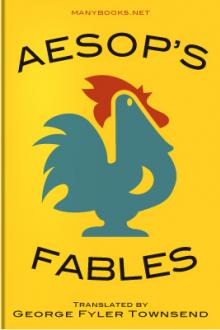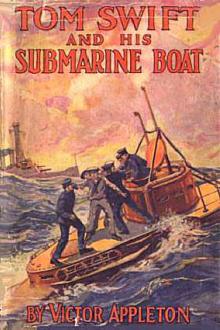The Curse of Capistrano, Harrington Strong [best new books to read .TXT] 📗

- Author: Harrington Strong
- Performer: -
Book online «The Curse of Capistrano, Harrington Strong [best new books to read .TXT] 📗». Author Harrington Strong
“Landlord!” he cried.
None of the men about the door gave him particular attention at first, thinking he was but some caballero on a journey wishing refreshment. The landlord hurried out, rubbing his fat hands together, and stepped close to the horse. And then he saw that the rider was masked, and that the muzzle of a pistol was threatening him.
“Is the magistrado within?” Senor Zorro asked.
“Si, Senor!”
“Stand where you are and pass the word for him. Say there is a caballero here who wishes speech with him regarding a certain matter.”
The terrified landlord shrieked for the magistrado, and the word was passed inside. Presently the judge came staggering out, crying in a loud voice to know who had summoned him from his pleasant entertainment.
He staggered up to the horse, and put one hand against it, and looked up to find two glittering eyes regarding him through a mask. He opened his mouth to shriek, but Senor Zorro warned him in time.
“Not a sound or you die,” he said. “I have come to punish you. Today you passed judgment on a godly man who was innocent. Moreover, you knew of his innocence, and his trial was but a farce. By your order he received a certain number of lashes. You shall have the same payment.”
“You dare—”
“Silence!” the highwayman commanded. “You about the door there—come to my side!” he called.
They crowded forward, the most of them peons who thought that here was a caballero who wished something done and had gold to pay for it. In the dusk they did not see the mask and pistol until they stood beside the horse, and it was too late to retreat then.
“We are going to punish this unjust magistrado” Senor Zorro told them. “The five of you will seize him now and conduct him to the post in the middle of the plaza, and there you will tie him. The first man to falter receives a slug of lead from my pistol, and my blade will deal with the others. And I wish speed, also.”
The frightened magistrado began to screech now.
“Laugh loudly, that his cries may not be heard,” the highwayman ordered; and the men laughed as loudly as they could, albeit there was a peculiar quality to their laughter.
They seized the magistrado by the arms and conducted him to the post and bound him there with thongs.
“You will line up,” Senor Zorro told them. “You will take this whip, and each of you will lash this man five times. I shall be watching, and if I see the whip fall lightly once I shall deal out punishment. Begin.”
He tossed the whip to the first man, and the punishment began. Senor Zorro had no fault to find with the manner in which it was given, for there was great fear in the hearts of the peons, and they whipped with strength, and willingly.
“You, also, landlord,” Senor Zorro said.
“He will put me in for it afterward,” the landlord wailed.
“Do you prefer carcel or a coffin, Senor?” the highwayman asked.
It became evident that the landlord preferred the carcel. He picked up the whip, and he surpassed the peons in the strength of his blows.
The magistrado was hanging heavily from the thongs now. Unconsciousness had come to him with about the fifteenth blow, more through fear than through pain and punishment. “Unfasten the man,” the highwayman ordered. Two men sprang forward to do his bidding. “Carry him to his house,” Senor Zorro went on. “And tell the people of the pueblo that this is the manner in which Senor Zorro punishes those who oppress the poor and helpless, who give unjust verdicts, and who steal in the name of the law. Go your ways.”
The magistrado was carried away, groaning, consciousness returning to him now. Senor Zorro turned once more to the landlord.
“We shall return to the tavern,” he said. “You will go inside and fetch me a mug of wine, and stand beside my horse while I drink it. It would be only a waste of breath for me to say what will happen to you if you attempt treachery on the way.”
But there was fear of the magistrado in the landlord’s heart as great as his fear of Senor Zorro. He went back to the tavern beside the highwayman’s horse, and he hurried inside as if to get the wine. But he sounded the alarm.
“Senor Zorro is without,” he hissed at those nearest the table. “He has just caused the magistrado to be whipped cruelly. He has sent me to get him a mug of wine.”
Then he went on to the wine cask and began drawing the drink slowly as possible.
There was sudden activity inside the tavern. Some half-dozen caballeros were there, men who followed in the footsteps of the governor. Now they drew their blades and began creeping toward the door, and one of them who possessed a pistol and had it in his sash, drew it out, saw that it was prepared for work, and followed in their wake.
Senor Zorro, sitting his horse some twenty feet from the door of the tavern, suddenly beheld a throng rush out at him, saw the light flash from half a dozen blades, heard the report of a pistol, and heard a ball whistle past his head.
The landlord was standing in the doorway, praying that the highwayman would be captured, for then he would be given some credit, and perhaps the magistrado would not punish him for having used the lash.
Senor Zorro caused his horse to rear high in the air, and then raked the beast with the spurs. The animal sprang forward, into the midst of the caballeros, scattering them.
That was what Senor Zorro wanted. His blade already was out of its scabbard, and it passed through a man’s sword arm, swung over and drew blood on another.
He fenced like a maniac, maneuvering his horse to keep his antagonists separated, so that only one could get at him at a time. Now the air was filled with shrieks and cries, and men came tumbling from the houses to ascertain the cause of the commotion. Senor Zorro knew that some of them would have pistols, and while he feared no blade, he realized that a man could stand some distance away and cut him down with a pistol ball.
So he caused his horse to plunge forward again, and before the fat landlord realized it, Senor Zorro was beside him and had reached down and grasped him by the arm. The horse darted away, the fat landlord dragging, shrieking for rescue and begging for mercy in the same breath. Senor Zorro rode with him to the whipping-post.
“Hand me that whip,” he commanded.
The shrieking landlord obeyed, and called upon the saints to protect him. And then Senor Zorro turned him loose, and curled the whip around his fat middle, and as the landlord tried to run he cut at him again and again. He left him once to charge down upon those who had blades and so scatter them, and then he was back with the landlord again, applying the whip.
“You tried treachery!” he cried. “Dog of a thief! You would send men about my ears, eh? I’ll strip your tough hide—”
“Mercy!” the landlord shrieked, and fell to the ground.
Senor Zorro cut at him again, bringing forth a yell more than blood. He wheeled his horse and darted at the nearest of his foes. Another pistol ball whistled past his head, another man sprang at him with blade ready. Senor Zorro ran the man neatly through the shoulder and put spurs to his horse again. He galloped as far as the whipping-post, and there he stopped his horse and faced them for an instant.
“There are not enough of you to make a fight interesting, Senores!” he cried.
He swept off his sombrero and bowed to them in nice mockery, and then he wheeled his horse again and dashed away.
BEHIND HIM HE LEFT a tumult in the town. The shrieks of the fat landlord had aroused the pueblo. Men came running, servants hurrying at their sides and carrying torches. Women peered from the windows of the houses. Natives stood still wherever they happened to be and shivered, for it had been their dear experience that whenever there was a tumult natives paid the price.
Many young caballeros of hot blood were there, and for some time there had been no excitement in the pueblo of Reina de Los Angeles. These young men crowded into the tavern and listened to the wails of the landlord, and some hurried to the house of the magistrado and saw his wounds, and heard him declaim on the indignity that had been offered the law, and therefore his excellency the governor.
Captain Ramon came down from the presidio, and when he heard the cause of the tumult he swore great oaths, and sent his only well man to ride along the Pala Road, overtake Sergeant Gonzales and his troopers, and bid them return and take the trail, since at the time being they were following a false scent.
But the young caballeros saw in this circumstance a chance for excitement that was to their liking, and they asked permission of the comandante to form a posse and take after the highwayman, a permission they received immediately.
Some thirty of them mounted horses, looked to weapons, and set out, with the intention of dividing into three bands of ten each when they came to forks in the trail.
The townsmen cheered them as they started, and they galloped rapidly up the hill and toward the San Gabriel road, making a deal of noise, glad that now there was a moon to let them see the foe when they approached him.
In time they separated, ten going toward-San Gabriel proper, ten taking the trail that led to the hacienda of Fray Felipe, and the last ten following a road that curved down the valley to the neighborhood of a series of landed estates owned by wealthy dons of the day.
Along this road, Don Diego Vega had ridden some time before, the deaf-and-dumb Bernardo behind him on the mule. Don Diego rode with leisure, and it was long after nightfall when he turned from the main road and followed a narrower one toward his father’s house.
Don Alejandro Vega, the head of the family, sat alone at his table, the remains of the evening meal before him, when he heard a horseman before the door. A servant ran to open it, and Don Diego entered, Bernardo following close behind him.
“Ah, Diego, my son!” the old don cried, extending his arms.
Don Diego was clasped for an instant to his father’s breast, and then he sat down beside the table and grasped a mug of wine. Having refreshed himself, he faced Don Alejandro once more.
“It has been a fatiguing journey,” he remarked.
“And the cause for it, my son?”
“I felt that I should come to the hacienda,” Don Diego said. “It is no time to be in the pueblo. Wherever a man turns, he finds nought but violence and bloodshed. This confounded Senor Zorro—”
“Ha! What of him?”
“Please do not ‘Ha!’ me, sir and father. I have been ‘Ha’d!’ at from morning until night these several days. These be turbulent times.
“This Senor Zorro has made a visit to the Pulido hacienda and frightened everyone there. I went to my hacienda on business, and from there I went over to see old Fray Felipe, thinking I might get a chance





Comments (0)